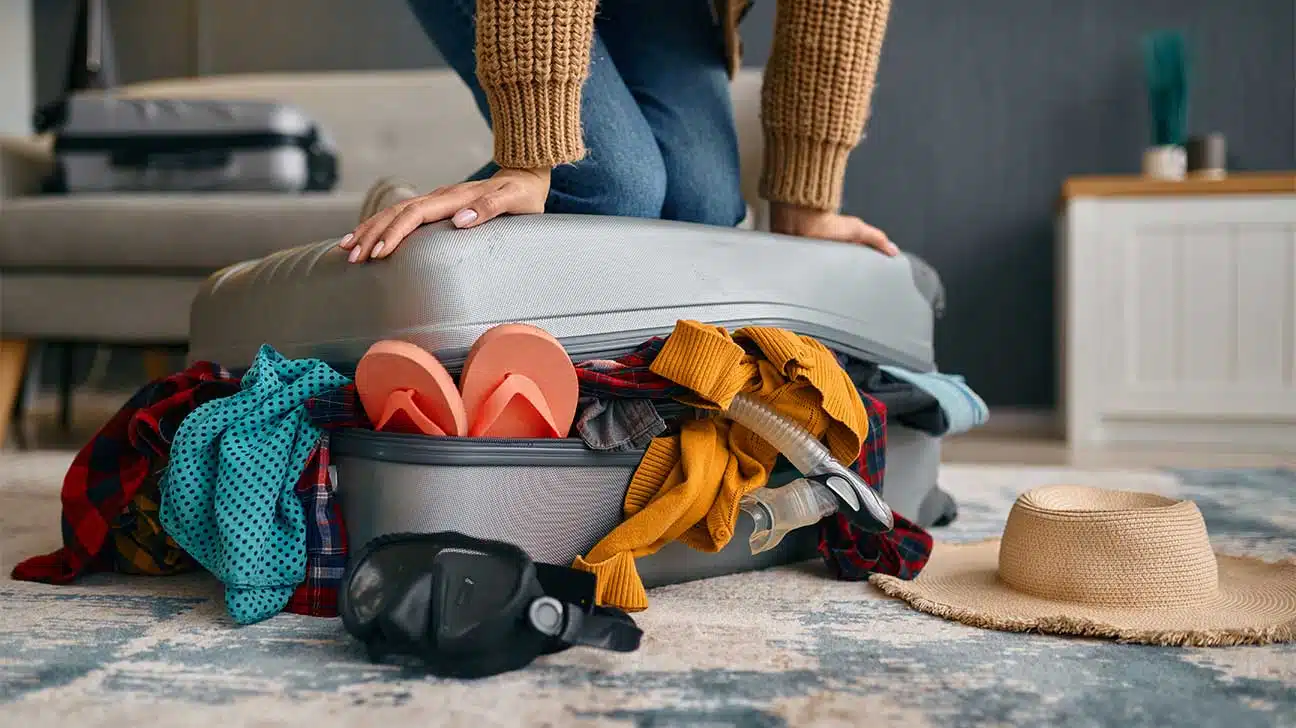
Knowing what to bring to a rehab center can help people feel more prepared for their addiction treatment program and thus feel more confident.
You’ll want to bring enough clothing for at least a week’s worth of daily wear and plenty of personal toiletries.
Personal items can include your debit card and insurance card, as well as reading material, pictures of loved ones, and other personal items not found on the rehab center’s prohibited items list.
Read on to learn more about the details.
A Packing List For Going To Rehab
Rehab programs, also called inpatient or residential treatment programs, require staying on campus for weeks or months at a time while receiving addiction healthcare.
The following list can help ensure that you have everything you need for a comfortable, successful rehabilitation experience.
Clothing
Being comfortable is paramount when staying at a substance abuse treatment center. Think cotton and other soft fabrics, items for layering, and clothes that are easy to wash.
Consider bringing a couple of pairs of sweatpants, comfortably fitting jeans or khakis, shorts for warmer weather, T-shirts, sweatshirts, pajamas, and other cozy garments. Don’t forget undergarments.
You may also want to bring at least one outfit for special occasions, such as on- or off-campus dinners with approved family members or other loved ones.
Be sure to bring at least two pairs of tennis shoes or sneakers for wearing around campus and taking part in outdoor activities such as hikes or sports.
Toiletries
Bringing your own toiletries is essential when packing for a drug rehab program.
Toiletries and other personal hygiene items to consider bringing include:
- deodorant
- shampoo
- conditioner
- toothbrush
- toothpaste
- plastic comb
- flip flops or slides for wearing in bathrooms
- alcohol-free mouthwash
- aerosol-free hairspray and shaving cream
- sunscreen
- nail clippers, if they are not prohibited by policies against sharp objects
- lotion
- feminine hygiene products, if required
You’ll also want to consider bringing a small plastic tote of some kind so that it’s easy to take your toiletries with you to the shower.
Personal Identification Items And Cash
Plan on bringing a small amount of cash, your driver’s license, a credit or debit card, and your health insurance card, just as you would anytime you’d be away from home for an extended time.
The rehab center may request to hold onto some of these valuables for safekeeping, so be prepared to potentially part with them during your stay.
You might also bring a list of your loved ones’ phone numbers to keep with you, as you may not be able to have your cell phone during the program.
Miscellaneous Items
Other items to consider bringing with you include an alarm clock, quarters in case there’s a vending machine, a journal, pictures of loved ones, and items that bring comfort, such as a favorite blanket.
How Do I Know What Items Are Prohibited When Packing For A Rehab Facility?
While drug and alcohol rehab centers do not necessarily have dress codes, there are certain items of clothing that may be prohibited.
These can include revealing garments such as short skirts and low-cut tops, certain kinds of bathing suits, or graphic shirts and hoodies that feature or relate in any way to substance paraphernalia.
The following items are generally prohibited at drug treatment centers:
- MP3 players
- sharp objects such as razors and knives
- cellphones
- video games
- vapes
Be sure to check with the rehabilitation center about what items it does not permit prior to enrollment.
Am I Allowed To Bring My Prescription Medication To Treatment?
Inpatient rehab centers usually require clients to declare whether or not they have any prescribed or over-the-counter medications when filling out intake forms.
These medications may be held for safekeeping and then later distributed under supervision when necessary.
Find Addiction Treatment Today
If you or a loved one is living with drug or alcohol addiction, contact AddictionResource.net today to discuss recovery options available.
Addiction Resource aims to provide only the most current, accurate information in regards to addiction and addiction treatment, which means we only reference the most credible sources available.
These include peer-reviewed journals, government entities and academic institutions, and leaders in addiction healthcare and advocacy. Learn more about how we safeguard our content by viewing our editorial policy.
- National Library of Medicine (NLM) — An Overview of Outpatient and Inpatient Detoxification
https://www.ncbi.nlm.nih.gov/pmc/articles/PMC6761814/ - Substance Abuse and Mental Health Services Administration (SAMHSA) — National Helpline
https://www.samhsa.gov/find-help/national-helpline


